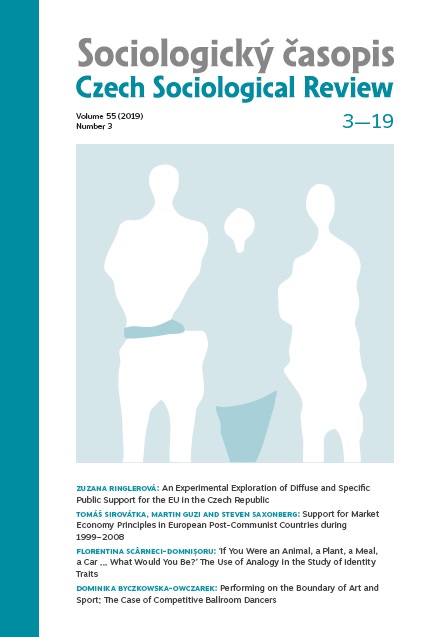‘If You Were an Animal, a Plant, a Meal, a Car … What Would You Be?’ The Use of Analogy in the Study of Identity Traits
‘If You Were an Animal, a Plant, a Meal, a Car … What Would You Be?’ The Use of Analogy in the Study of Identity Traits
Author(s): Florentina Scârneci-DomnișoruSubject(s): Individual Psychology, Cognitive Psychology
Published by: AV ČR - Akademie věd České republiky - Sociologický ústav
Keywords: analogy; metaphorical thinking; creative methodologies; identity; qualitative data
Summary/Abstract: The article presents a new data-collection technique that can be applied in identity studies: analogy. The use of metaphor in identity studies is no novelty, but this particular creative exercise used in sociological research has not been described before in the methodological literature. Three pieces of research in which this technique has been applied are presented here: studies in which participants have been asked to analogise the profession of sociologist, a state-owned company, or a privately-owned company with animals, plants, automobiles musical instruments, or types of meals. The article highlights the special features of the analogy technique, such as the fact that it diminishes the control mechanisms of the participants, making the data that are obtained less sensitive to social desirability. The analogy is presented as an unusual and fun technique that breaks up the routine of the respondent’s day-to-day life and is a contrast to the monotonous nature of common tests and questionnaires. Applying this exercise in social research is easy. Analogy obtains meaningful answers from participants and it provides valuable results. Because it is able to access surprising information and a very wide range of identity aspects, analogy can be used in all kinds of social research: sociological, psychological, management, political sciences, communication, social work, public relations, human resources, and others.
Journal: Sociologický časopis / Czech Sociological Review
- Issue Year: 55/2019
- Issue No: 3
- Page Range: 347-368
- Page Count: 22
- Language: English

